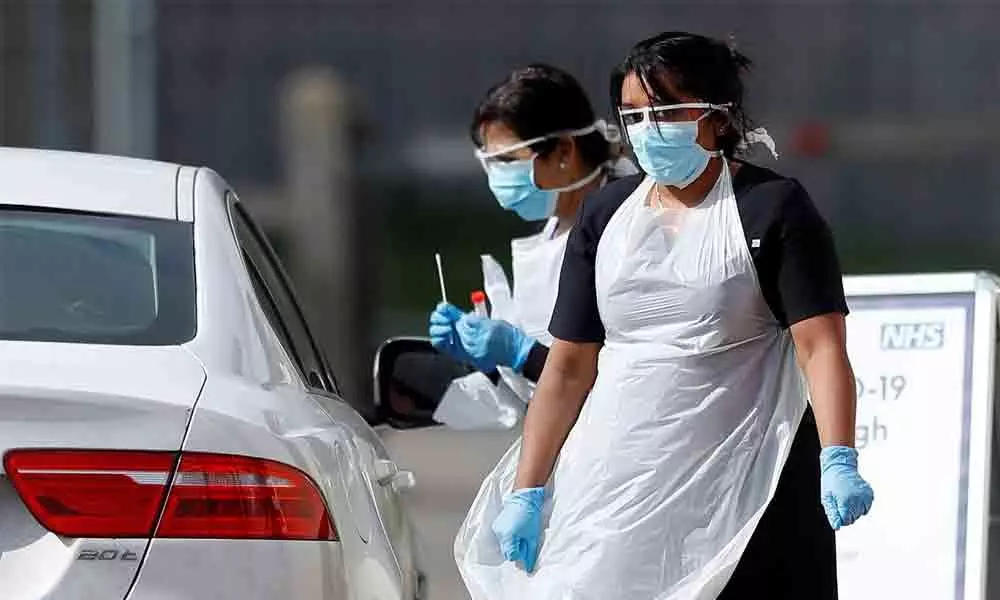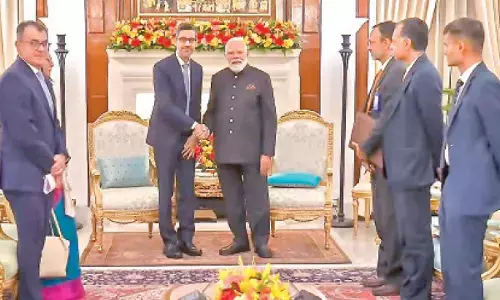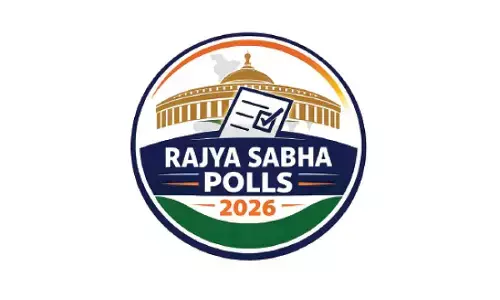New global economy after corona

There are three uncertainties regarding the long term economic impact of the coronavirus.
There are three uncertainties regarding the long term economic impact of the coronavirus. One, whether a vaccine is invented to prevent the spread of the virus or not.
Two, whether this virus will get eliminated during the summer months or it will reappear in the next winters. Three, whether the common man will develop immunity against the virus, or it will continue to inflict damage.
These uncertainties will determine whether the impact of corona will be like "U" or "L." "U" would mean that the economy will go down for a while but soon pick up to the old levels; while "L" would mean that the economy will not bounce back and continue on the slow lane for a considerable time. Prudence requires that we plan for a worst-case "L" scenario where the pandemic continues to restrict economic activity for considerable time.
The economic consequence will be hard if the pandemic continues beyond 21 days. It will nevertheless be deep even due to the present 21-day lockdown. Businesses will have to pay interest to the banks for the 21-days of lockdown. They will have no income to pay this interest while the interest burden continues to pile up. Many are likely to go bankrupt.
The banks will face trouble if they waive off the interest for this period because they will be required to pay interest to their depositors. They will have no income from the loans while they will have to pay money to the depositors. Reneging on this commitment will lead to a loss of confidence in the banking sector with disastrous economic consequences. People will start buying gold then.
Non-payment of interest on deposits will also lead to a reduction in demand by those who depend on the income from fixed deposits and again pull down the economy. Thus, I expect a number of businesses, especially large corporations that have borrowed heavily to go bankrupt. Such bankruptcies will destabilise the entire financial system more deeply that was done by IL&FS during "normal" times.
The governments of India, United States and certain European countries have announced fiscal stimulus to combat this impending slowdown. The basic concept of the fiscal stimulus is that the government will borrow and invest to jumpstart economic activity. Say, the government invests in highways.
The cost of to transport will be reduced. Economic activity will be increased. The government will earn additional tax revenues from this additional activity. The revenue will be used by the government to repay the loan. However, the present fiscal stimulus will generate no additional incomes.
It will only compensate for the loss of income due to the lockdown. The government will not earn any additional revenues from the fiscal stimulus at present. On the other hand, the borrowings will create additional burden on the future revenues of the government. Thus, these fiscal stimuli will only shift the present burden of the lockdown to the future without generating any additional incomes.
The monetary policy has similar limitations. The Central banks can reduce the interest rates to encourage the businesses to borrow and invest to encourage the consumers to borrow and consume. The United States' Federal Reserve Board has reduced the interest rates to zero.
The Japanese Central Bank has been holding to zero interest rate for a considerable time. These steps have not led to lead to revving up of the economy because businesses are not willing to borrow-and-invest in the absence of demand from the market; and consumers are not willing to borrow-and-consume in the absence of security of jobs in the coming times. Both fiscal and monetary policies, therefore, are unlikely to help in combatting even the impacts of the present 21-day lockdown.
We must plan, however, for a longer period of troubles assuming that the lockdown continues beyond 21 days even if at a reduced level of restrictions and the crisis plays out in "L" shape. The way out is to break-up the economy into small segments will less inter-segmental contact.
The coronavirus mainly spreads through person-to-person contact. Such contacts take place between people from diverse areas due to foreign travel, trade and investment. A large number of the corona patients in India, for example, are those who had been working abroad in certain projects or had been pursuing studies in different countries.
Such contacts would be reduced if we break-up the economy into segments and discourage active contact between them. For example, Italy and Spain at the global level, and Maharashtra and Kerala at the national level have had a deeper impact of corona.
The impact would have been less if we had hemmed in not only Italy, Spain, Maharashtra and Kerala but all countries and States into "closed" areas and reduced the contacts between the countries and States.
This would require that we find substitutes for the olives from Italy, citrus fruits from Spain, onions from Maharashtra and pepper from Kerala. Countries like Bangladesh and States like Orissa will have to develop their own factories for making steel and cars and establish tuition centres like Pune and Kota.
The reduction in inter-segmental trade will help us continue with economic activity in States not affected by the virus. I am essentially proposing a segment-wise lockdown rather than a global- or national level lockdown.
We do not know whether the coronavirus will be eliminated or not. Prudence requires that we err on the side of caution. The loss by unnecessarily segmenting the economy (if the virus is eliminated) will be less than the loss incurred by continued integration (if the virus continues).
It will be easy to reintegrate the segments of the economy if the virus is eliminated. It will be very difficult to segment the economy with every passing week if the virus continues to spread.
I am not happy to say this, but I must. We get access to cheap and good quality goods by global integration. But this comes along with epidemics like corona. We will have to buy more expensive home-produced goods with a segmented economy.
But we will have less chances of epidemics like corona. This is the hard choice that we have to decide. Do we want cheap goods with more chances of pandemics; or are we willing to live with expensive goods with less chances of pandemics? I am not arguing for making iron curtains between countries.
I am arguing for lesser integration, greater self-containment and more autonomy even if the standard of living is somewhat less. Let us live without fear even if at a reduced level of income.
The writer is formerly Professor of Economics at IIM, Bengaluru)










